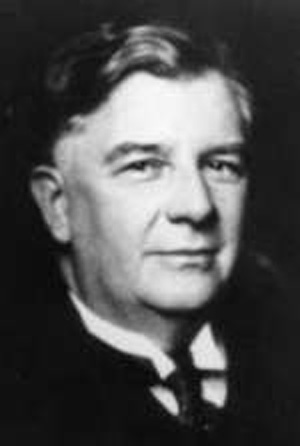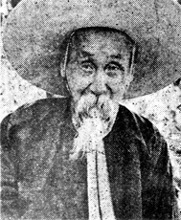
Richard Wilhelm was born on May 10, 1873 in Tubingen, Germany and he died in Stuttgart, Germany on Mar. 2, 1930. When he was 22 in 1895 he was ordained as a protestant minister and shortly thereafter became a missionary in Tsingtao, China. He was encouraged to study the Chinese language which he found he had a gift for. In 1905 when his son Hellmut was born, he started his translation work on some of the Chinese classics into German. This work of translating the Chinese spiritual thought continued for the rest of his life. He went to China to convert the heathens, but ended up being converted to the Chinese way. He felt his mission was to bridge a gap between Western and Eastern spirituality.

In 1911 he met one Lao Nai-hsuan, a Chinese sage and scholar. This sage was experienced in the old Chinese ways, especially in matters of the I Ching, and decided to teach them to Wilhelm. Wilhelm started the Confucius Society in Tsingtao and Lao Nai-hsuan was put in charge of it. His special enthusiasm for the I Ching was passed on to Wilhelm and seemingly for the first time the profound spiritual insights of China were shared with a European.
They began the translation of the I Ching in 1913 and finished it in 1921. Just as the last proofs were ready Lao Nai-hsuan died. He succeeded in passing on his life’s work to unite the East and West mystically. In 1923 the I Ching, or Book of Changes was published. Shortly thereafter Wilhelm left China and became a Professor of Chinese Studies at the University of Frankfort. He founded and was the director of the China Institute from 1924 until he died in 1930.
His life changed from translating to lecturing. He befriended Count Keyserling and they wrote a book on marriage (east and west). During this time Wilhelm became a close acquaintance of Carl Jung whose support helped him gain some significance in German academic circles. Jung wrote introductions to Wilhelm’s I Ching: Book of Changes and also to his other major work The Secret of the Golden Flower. Jung had been significantly influenced by both of these books. Wilhelm’s books gained acceptance and his influence grew to influence many cultural leaders such as author Herman Hesse and musician Joseph Hauer. Richard Wilhelm died at the age of 57.
His works have opened up the deep insights of China to the rest of the world and continue to do so to this very day.
His version of the I Ching with Carl Jung’s introduction and explanation of synchronicity has captured and inspired the minds of many westerners and opened them up to the Chinese way of life and inner contemplation. With the guidance of his master he took the various wings of the I Ching and merged them into a form that made the I Ching both fascinating and usable. It is this magic in his translation that has not been met by other scholars. He made it simple to use and yet kept the profundity of Confucian thinking intact and accessible.
